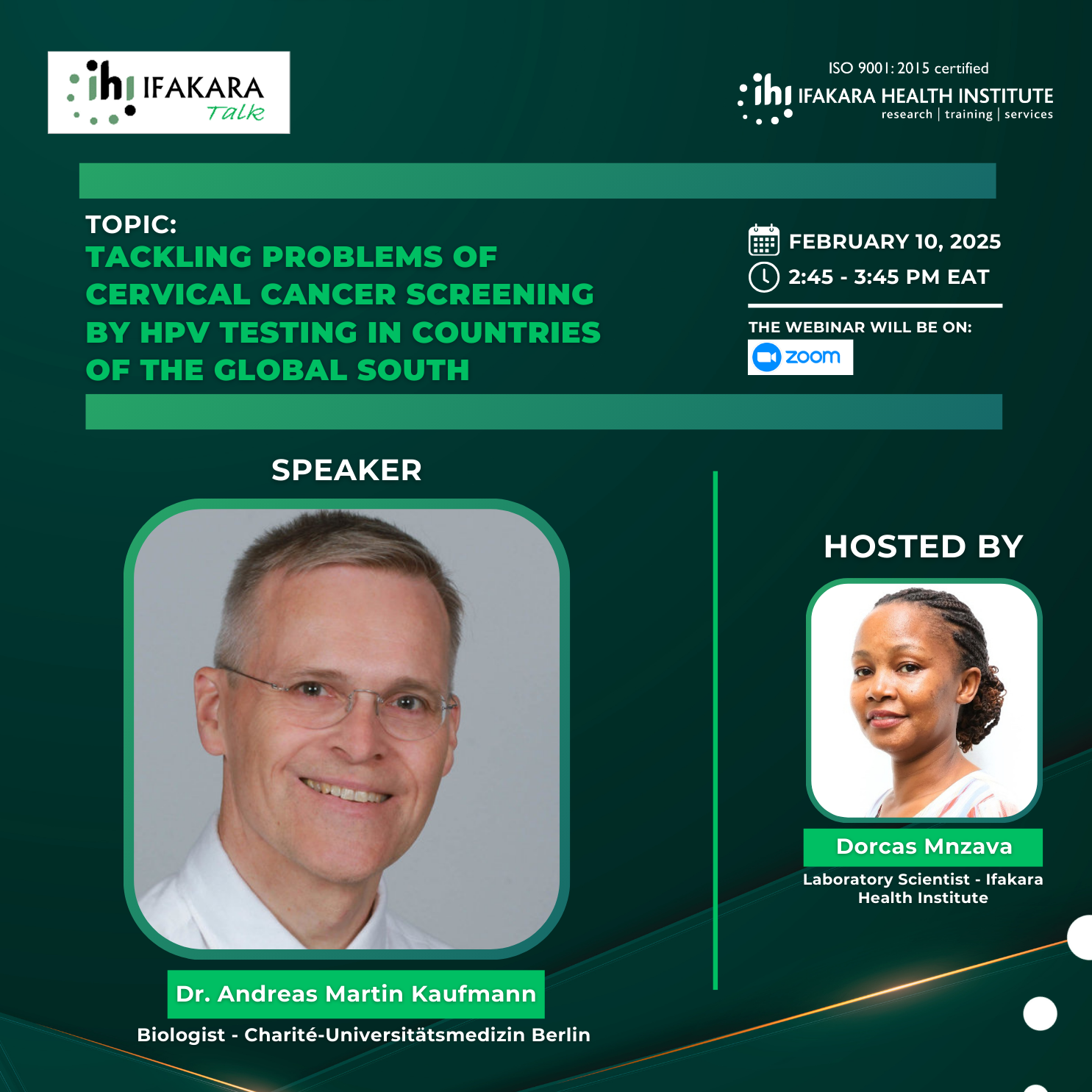
TALK: Unlocking new frontiers in cervical cancer screening: A Global South perspective

Cervical cancer continues to be a major health challenge, especially in the Global South. But what if we could change that narrative? On Februray 10, 2025, at 2:00 PM EAT, the Ifakara Health Institute hosted an eye-opening talk titled "Tackling problems of cervical cancer screening by HPV testing in countries of the global south."
This talk, addressed by Dr. Andreas Martin Kaufmann, a biologist specializing in HPV screening at Charité-Universitätsmedizin Berlin, was exclusive for Ifakara members and their collaborators due to its scientific nature.
As a leading figure in HPV research, Dr. Kaufmann brought a wealth of knowledge from his work on immunology, vaccine development, and practical solutions for cervical cancer prevention.
Cervical cancer “no longer a looming threat”
Imagine a world where cervical cancer, largely preventable, is no longer a looming threat in communities across the Global South. Dr. Kaufmann guided the participants through this vision by discussing real-world challenges, innovative solutions, and success stories.
HPV screening and treatment in Tanzania
In his presentation, Dr. Kaufmann highlighted an ongoing HPV screening program in Tanzania, particularly one implemented at Saint Francis Referral Hospital in Ifakara through the Kilombero and Ulanga AntiRetroviral Cohort (KIULARCO),. This initiative, supported by the Ifakara Health Institute, aligns with similar successful programs in Ethiopia and Cameroon.
The initiative aims to expand cervical cancer screening and treatment for women living with HIV (WLWH) enrolled in KIULARCO by increasing outreach efforts through providing screening services in rural villages and workplaces.
Capacity-building efforts are also a priority, with colposcopy training courses conducted in collaboration with Unispital Basel—five completed between 2020 and 2024, and a sixth scheduled to take place from February 11-17.
Key takeaways from the talk
Despite the program’s success, Dr. Kaufmann underscored the need for alternative HPV testing approaches, noting that WHO's high-risk HPV (HR-HPV) testing may not be fully suitable for the Global South, necessitating tailored strategies.
Beyond medical interventions, Dr. Kaufmann stressed the importance of understanding local perceptions and beliefs among women and stakeholders. Engaging communities and addressing cultural concerns are essential steps in increasing screening uptake and ensuring the long-term success of the program. And while obstacles exist, taking ownership and proactive measures is important in the fight against cervical cancer.
